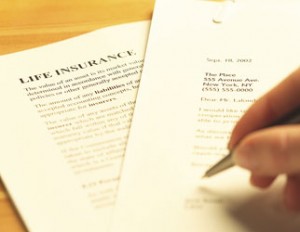Watered down home insurance policies
Water damage isn't always covered by your home insurance policy. Surprised? Most people are.
Advertisement
Water damage isn't always covered by your home insurance policy. Surprised? Most people are.
 Spring sprang and on came my sump-pump. It makes a racket, but I don’t even hear it anymore, I’m so used to it. I need a sump-pump because without it my basement would flood every year. Did you know that water damage is the leading cause of property damage in Canada?
Thing is, water damage isn’t always covered by your insurance policy. Surprised? Most people are. Better have a back-up plan just in case.
Want to know what may not be covered? (Here’s where you pull your insurance policy out of the back of that drawer to check if you’re covered.)
1. Sewer back-ups. Garbage, tree roots and debris blocking a sewer line and resulting in backups into your home isn’t automatically covered in most home insurance policies. You might be able to purchase additional coverage for this.
2. Water seepage. When water seeps in through basement walls or windows because the water table is high, it usually isn’t covered under a regular home policy. Did you know that according to the Insurance Bureau of Canada, we now get 20 more days of rainfall a year than our grandparents did back in the 50s? Same goes for seepage due to ice damming or clogged eaves troughs. Hey, you should have cleaned those puppies out!
3. Water damage while you’re on vacation. If your pipes freeze and burst while you’re off in the sunny south, you may come back to a serious problem that’s not covered by insurance. Technically, the insurance company wants someone checking in on your home every couple of days, or an alarm system that warns of leaks. If you haven’t arranged for someone to look in on your home regularly, the insurance company will likely say, “Too bad, so sad!”
In the best of all worlds, your home will never suffer from water damage. If you want to weigh the odds in your favour, head on over to the Insurance Bureau of Canada’s website and review their tips for minimizing water damage to your property.
Should you have to make a claim, it’s best to have before and after photos and the invoices for anything that will be expensive to replace. The more documents you have as proof of what needs to be replaced, the more likely you are to have a happy ending.
Spring sprang and on came my sump-pump. It makes a racket, but I don’t even hear it anymore, I’m so used to it. I need a sump-pump because without it my basement would flood every year. Did you know that water damage is the leading cause of property damage in Canada?
Thing is, water damage isn’t always covered by your insurance policy. Surprised? Most people are. Better have a back-up plan just in case.
Want to know what may not be covered? (Here’s where you pull your insurance policy out of the back of that drawer to check if you’re covered.)
1. Sewer back-ups. Garbage, tree roots and debris blocking a sewer line and resulting in backups into your home isn’t automatically covered in most home insurance policies. You might be able to purchase additional coverage for this.
2. Water seepage. When water seeps in through basement walls or windows because the water table is high, it usually isn’t covered under a regular home policy. Did you know that according to the Insurance Bureau of Canada, we now get 20 more days of rainfall a year than our grandparents did back in the 50s? Same goes for seepage due to ice damming or clogged eaves troughs. Hey, you should have cleaned those puppies out!
3. Water damage while you’re on vacation. If your pipes freeze and burst while you’re off in the sunny south, you may come back to a serious problem that’s not covered by insurance. Technically, the insurance company wants someone checking in on your home every couple of days, or an alarm system that warns of leaks. If you haven’t arranged for someone to look in on your home regularly, the insurance company will likely say, “Too bad, so sad!”
In the best of all worlds, your home will never suffer from water damage. If you want to weigh the odds in your favour, head on over to the Insurance Bureau of Canada’s website and review their tips for minimizing water damage to your property.
Should you have to make a claim, it’s best to have before and after photos and the invoices for anything that will be expensive to replace. The more documents you have as proof of what needs to be replaced, the more likely you are to have a happy ending.
Share this article Share on Facebook Share on Twitter Share on Linkedin Share on Reddit Share on Email